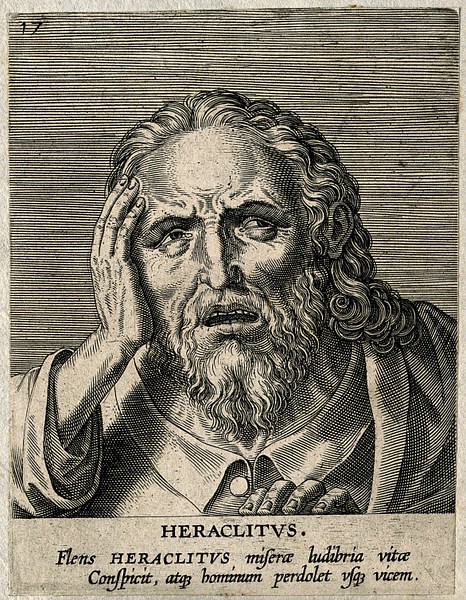Reference



OpenAI's Answer
Heraclitus, a pre-Socratic Greek philosopher, is renowned for several influential philosophical concepts. Let's explore some of the core ideas discussed in his works:
-
Doctrine of Flux: Heraclitus is perhaps best known for his assertion that everything is in constant change or flux. This is often encapsulated in the phrase, "You cannot step into the same river twice," meaning that the river is constantly changing, and so are we (Internet Encyclopedia of Philosophy).
-
Unity of Opposites: Heraclitus proposed that opposites are necessary for life and they unify to create harmony. This idea underscores the balance and interdependence of contrasting forces in the universe (Stanford Encyclopedia of Philosophy).
-
Logos: He introduced the concept of "Logos" (often translated as "Word" or "Reason"), which governs the cosmos and its order. It represents a rational structure underlying the universe, enabling both change and stability (Britannica).
-
Fire as the Basic Element: Heraclitus viewed fire as the primary substance from which everything else emerges and into which everything eventually returns. This symbolizes the transformative and dynamic nature of reality (Stanford Encyclopedia of Philosophy).
-
Epistemology and Metaphysics: His epistemology ties closely to his metaphysics, which posits that the world is orderly and guided by a unifying principle. Knowledge, according to Heraclitus, is an understanding of this underlying order and the constant change within it (SparkNotes).
Here are some images related to Heraclitus and his philosophical ideas:
These are some core philosophical ideas that Heraclitus explored in his works, according to various sources. For a deeper dive into his philosophy, you can refer to the Internet Encyclopedia of Philosophy and the Stanford Encyclopedia of Philosophy.
Follow Up
Related
CHAPTER 2 - Literature Review 2.1. Introduction This chapter undertakes a review of literature to
How tinted sunscreen is more superior than non tinted sunscreen? Support answer with actual journals
How did Einarr's conflict with Hálfdan unfold according to the sagas?
How did critics perceive the episode Fortunate Son in terms of premise and execution?
